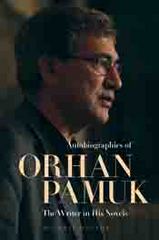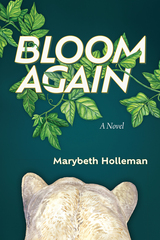
"Pamuk is a writer who shares my reverence for the great art of the novel. He takes the novel seriously in a way that is perhaps no longer possible for Western writers, boldly describing it as European civilization’s greatest invention."—Michael McGaha
Turkish novelist Orhan Pamuk is a prominent voice in Turkish literature, speaking to the country’s history, culture, and politics. In 2006, he became the first Turkish writer to receive the Nobel Prize for Literature.
Autobiographies of Orhan Pamuk is the first book-length study of the life and writings of Pamuk. It provides both a historical and cultural context that will help readers better understand and appreciate both the man and his work. It begins with a brief biography, outlines Pamuk’s contributions to Turkish literature and history, examines how his art has evolved over the past thirty years, and discusses some of the writers who provided inspiration. Though his books deal with specifically Turkish issues, like all great literature the themes they explore are universal. In addition to a thorough analysis of his seven published novels, including Snow and My Name is Red, an entire chapter is devoted to his first two novels, Cevdet Bey and Sons and The Silent House, which have yet to be translated into English.
This is a comprehensive examination of the Nobel laureate’s work, free of jargon and of interest to anyone who enjoys good literature.

George Orwell once said of Dickens’ work: “It is not so much a series of books, it is more like a world.” In this book, J. Hillis Miller attempts to identify this “world,” to show how a single view of life pervades every novel that Dickens wrote, and to trace the development of this view throughout the chronological span of Dickens’ career. There are full critical analyses of six of the novels—Pickwick Papers, Oliver Twist, Martin Chuzzlewit, Bleak House, Great Expectations, and Our Mutual Friend—and shorter discussions of many of the others. Each novel has been viewed as the transformation of the real world of Dickens’ experience into an imaginary world with certain special qualities of its own.
Certain elements persist through all the novels, the most important of which are the general situation of the hero at the beginning of the story and the general nature of the world in which he lives. Each of Dickens’ heroes begins his life cut off from other people, in a world which seems menacing and unfriendly and, on the social side, composed of inexplicable rituals and mysterious conventions; each lives, like Paul Dombey, “with an aching void in his young heart, and all outside so cold, and bare, and strange.” The heroes then move through successive adventures in an attempt to understand the world, to integrate themselves into it, and thus to find their true identity. Initially creatures of poverty and indigence, those characters reach out for something which transcends the material world and the self, something other than human, which will support and maintain the self without engulfing it. Within the totality of Dickens' novels this problem—the search for selfhood—is stated and restated, until, in the later novels, the answer is found to line in a rejections of the past, the given, and the exterior, and a reorientation toward the future and the free human spirit itself as the only true sources of value.
With a real understating and sympathy for his subject, Miller manages to transport us into the midst of Dickens’ “world” and to bring alive for us the whole strange and wonderful tribe that people his novels. This is an enlightening, well-written, enjoyable book for anyone who has ever had an interest in Dickens and his work.

Ronald Harwood’s Tragic Vision offers the first critical analysis of prolific and award-winning British author Ronald Harwood (1934–2020). Though he received an Oscar for The Pianist, a knighthood, and numerous other awards and nominations, Harwood worked as a ghostwriter, script doctor, and veritable unknown for many years. As he became successful, many critics still misread his works and positioned him as a less-fashionable counterpart to his lifelong friend Harold Pinter. This study proposes a conceptual framework to approach his, and others’, work based on the genre of tragedy, offering a greater appreciation for and understanding of the Harwood canon.


READERS
Browse our collection.
PUBLISHERS
See BiblioVault's publisher services.
STUDENT SERVICES
Files for college accessibility offices.
UChicago Accessibility Resources
home | accessibility | search | about | contact us
BiblioVault ® 2001 - 2025
The University of Chicago Press









